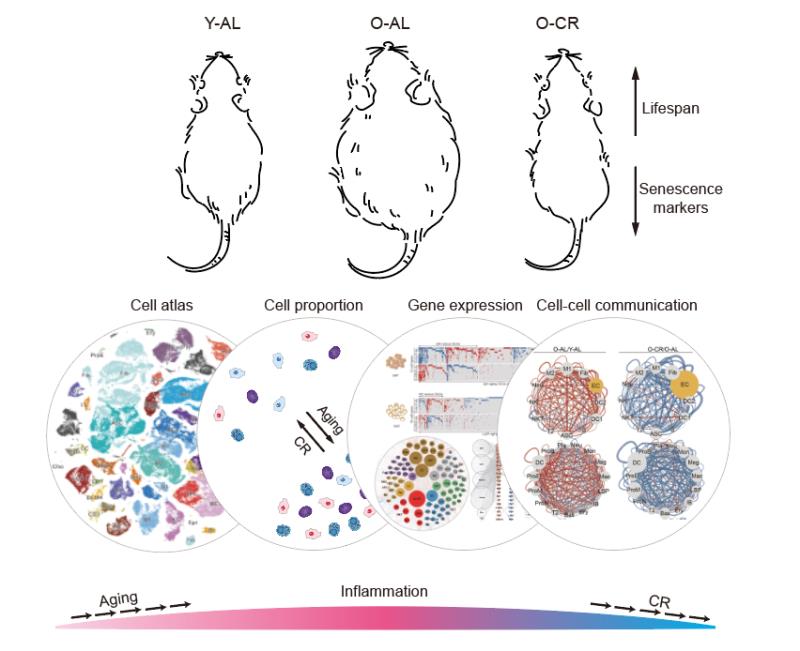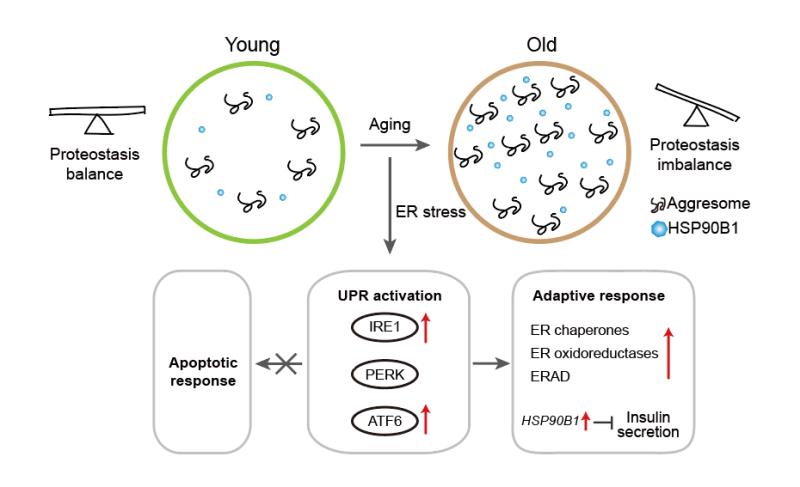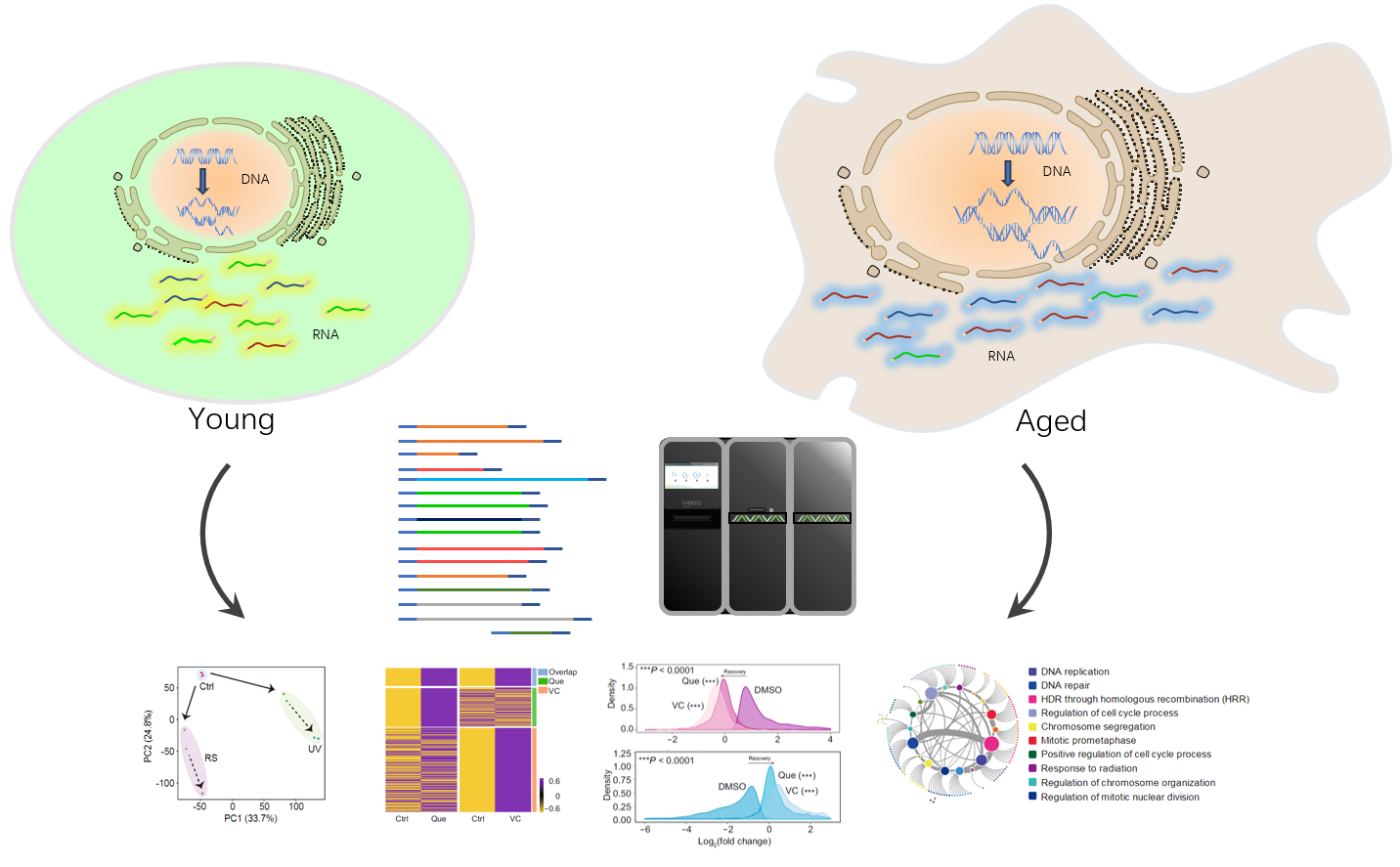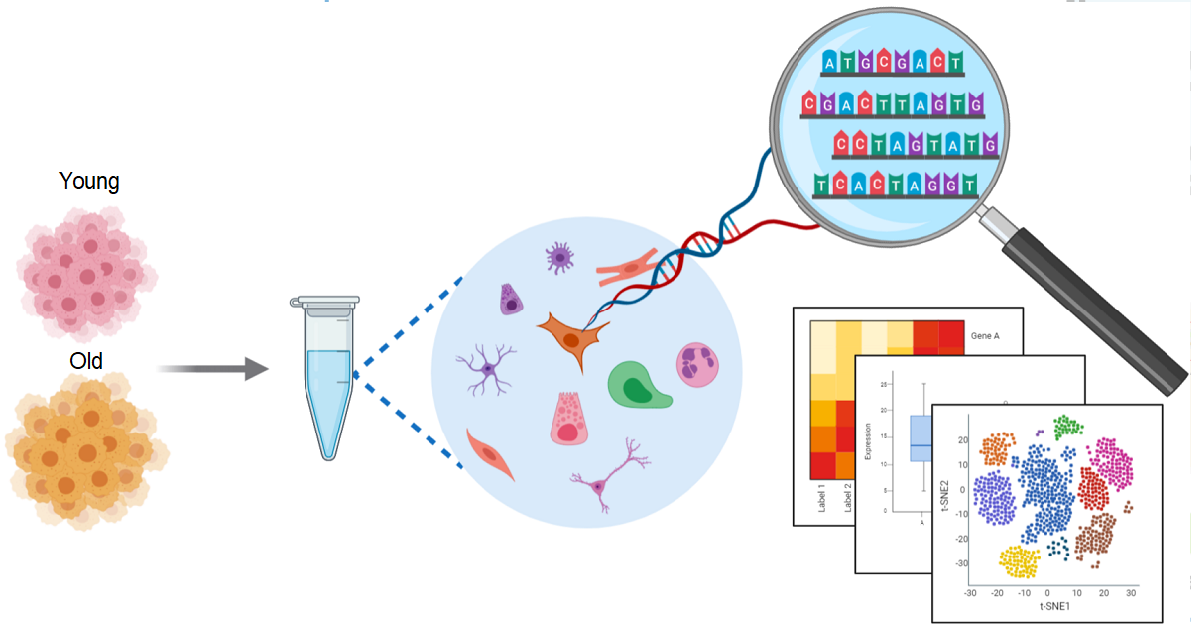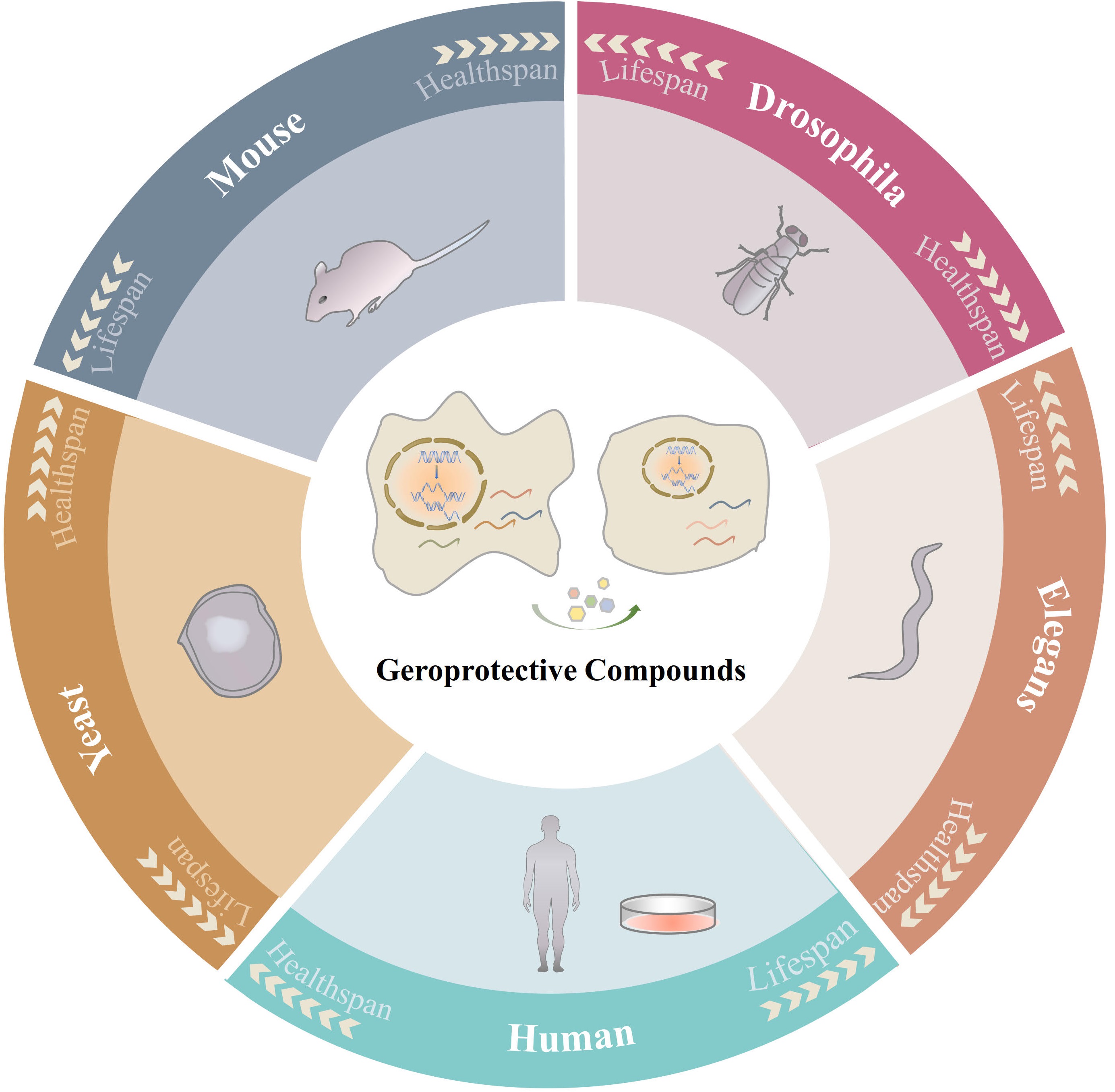Welcome to Aging Atlas
Aging Atlas aims to compile large gene expression and regulation datasets created by a range of high-throughput omics technologies and serve as a valuable resource for a range of life science researchers. The current implementation includes five modules: transcriptomics, epigenomics, single-cell transcriptomics, proteomics, and pharmacogenomics. Aging Atlas provides user-friendly functionalities to explore age-related changes in gene expression and provides download services for raw multi-omics data from aging-related research.
Gene of the Month
Gene name: DDX58
Description for this gene: DEAD box proteins, characterized by the conserved motif Asp-Glu-Ala-Asp (DEAD), are putative RNA helicases which are implicated in a number of cellular processes involving RNA binding and alteration of RNA secondary structure. This gene encodes a protein containing RNA helicase-DEAD box protein motifs and a caspase recruitment domain (CARD). It is involved in viral double-stranded (ds) RNA recognition and the regulation of immune response. [provided by RefSeq, Jul 2008]










